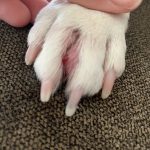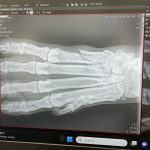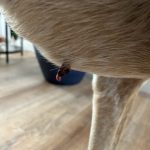Hello,
Please see your vet asap! This is an open wound and antibiotics and pain medication is needed asap. .
At my clinic the cost of an exam is about $50 and a topical antibiotic wash (we use our surgical prep wash) is about $20. Antibiotics and an analgesic can be prescribed via chewy for about $20 each if you ask for it this way.
You can also ask your vet to show you how to manage this so that it will not happen again.
Please see your vet asap. And open infected wound by the anus is something to be addressed. I understand this is a holiday weekend in the USA If your vet is closed then call an er and ask for help. In many cases IF the pet is acting normally (eating drinking and acting like their normal self) it might be able to wait until after the holiday, but the er also might be your best bet so she doesn’t have to wait days.
You can absolutely ask the er to be mindful of your budget. These cases for me are an exam and medications. These cases should not be costly anywhere. If you feel that they are not following your request to stay affordable come back to pawbly and let us know. And then see your vet on weds.













hello,
i think that often these cases are due to an allergy, irritant, or possibly a wound (thorn, bite etc). In almost all cases in my clinic i look for any other signs of allergies, make sure my patient is on a good flea and tick preventative and also look for any chance of a wound/injury/foreign body. Then we usually do a topical cleaner, antibiotic, and place an ecollar as we address any underlying itch with an oral medication. If it doesnt resolve within an acceptable period of time we might talk about a biopsy. impression smear, or other diagnostic tools to identify the underlying cause.